The Irish Cup is the principal knockout tournament for clubs playing in Northern Ireland. First held in the 1880/81 season this is the fourth oldest cup of its kind in the world after the English, Scottish and Welsh FA Cups.
The Irish Cup is organised by the Irish Football Association (IFA) with the final traditionally played at Windsor Park in Belfast, the home of the Northern Ireland national team. Windsor Park is also home to the Irish Cup’s most successful team, Linfield, who have 44 titles to their name.
Irish Cup Winners By Year
| Season | Winner | Score | Runner-up |
|---|---|---|---|
| 2021–22 | Crusaders | 2 – 1 (a.e.t.) | Ballymena United |
| 2020–21 | Linfield | 2 – 1 | Larne |
| 2019–20 | Glentoran | 2 – 1 | Ballymena United |
| 2018–19 | Crusaders | 3 – 0 | Ballinamallard United |
| 2017–18 | Coleraine | 3 – 1 | Cliftonville |
| 2016–17 | Linfield | 3 – 0 | Coleraine |
| 2015–16 | Glenavon | 2 – 0 | Linfield |
| 2014–15 | Glentoran | 1 – 0 | Portadown |
| 2013–14 | Glenavon | 2 – 1 | Ballymena United |
| 2012–13 | Glentoran | 3 – 1 | Cliftonville |
| 2011–12 | Linfield | 4 – 1 | Crusaders |
| 2010–11 | Linfield | 2 – 1 | Crusaders |
| 2009–10 | Linfield | 2 – 1 | Portadown |
| 2008–09 | Crusaders | 1 – 0 | Cliftonville |
| 2007–08 | Linfield | 2 – 1 | Coleraine |
| 2006–07 | Linfield | 5 – 4 pens | Dungannon Swifts |
| 2005–06 | Linfield | 2 – 1 | Glentoran |
| 2004–05 | Portadown | 5 – 1 | Larne |
| 2003–04 | Glentoran | 1 – 0 | Coleraine |
| 2002–03 | Coleraine | 1 – 0 | Glentoran |
| 2001–02 | Linfield | 2 – 1 | Portadown |
| 2000–01 | Glentoran | 1 – 0 | Linfield |
| 1999–00 | Glentoran | 1 – 0 | Portadown |
| 1998–99 | Portadown | No Final | |
| 1997–98 | Glentoran | 1 – 0 | Glenavon |
| 1996–97 | Glenavon | 1 – 0 | Cliftonville |
| 1995–96 | Glentoran | 1 – 0 | Glenavon |
| 1994–95 | Linfield | 3 – 1 | Carrick Rangers |
| 1993–94 | Linfield | 2 – 0 | Bangor |
| 1992–93 | Bangor | 1 – 0 | Ards |
| 1991–92 | Glenavon | 2 – 1 | Linfield |
| 1990–91 | Portadown | 2 – 1 | Glenavon |
| 1989–90 | Glentoran | 3 – 0 | Portadown |
| 1988–89 | Ballymena United | 1 – 0 | Larne |
| 1987–88 | Glentoran | 1 – 0 | Glenavon |
| 1986–87 | Glentoran | 1 – 0 | Larne |
| 1985–86 | Glentoran | 2 – 1 | Coleraine |
| 1984–85 | Glentoran | 1 – 0 | Linfield |
| 1983–84 | Ballymena United | 4 – 1 | Carrick Rangers |
| 1982–83 | Glentoran | 2 – 1 | Linfield |
| 1981–82 | Linfield | 2 – 1 | Coleraine |
| 1980–81 | Ballymena United | 1 – 0 | Glenavon |
| 1979–80 | Linfield | 2 – 0 | Crusaders |
| 1978–79 | Cliftonville | 3 – 2 | Portadown |
| 1977–78 | Linfield | 3 – 1 | Ballymena United |
| 1976–77 | Coleraine | 4 – 1 | Linfield |
| 1975–76 | Carrick Rangers | 2 – 1 | Linfield |
| 1974–75 | Coleraine | 1 – 0 | Linfield |
| 1973–74 | Ards | 2 – 1 | Ballymena United |
| 1972–73 | Glentoran | 3 – 2 | Linfield |
| 1971–72 | Coleraine | 2 – 1 | Portadown |
| 1970–71 | Distillery | 3 – 0 | Derry City |
| 1969–70 | Linfield | 2 – 1 | Ballymena United |
| 1968–69 | Ards | 4 – 2 | Distillery |
| 1967–68 | Crusaders | 2 – 0 | Linfield |
| 1966–67 | Crusaders | 3 – 1 | Glentoran |
| 1965–66 | Glentoran | 2 – 0 | Linfield |
| 1964–65 | Coleraine | 2 – 1 | Glenavon |
| 1963–64 | Derry City | 2 – 0 | Glentoran |
| 1962–63 | Linfield | 2 – 1 | Distillery |
| 1961–62 | Linfield | 4 – 0 | Portadown |
| 1960–61 | Glenavon | 5 – 1 | Linfield |
| 1959–60 | Linfield | 5 – 1 | Ards |
| 1958–59 | Glenavon | 2 – 0 | Ballymena United |
| 1957–58 | Ballymena United | 2 – 0 | Linfield |
| 1956–57 | Glenavon | 2 – 0 | Derry City |
| 1955–56 | Distillery | 1 – 0 | Glentoran |
| 1954–55 | Dundela | 3 – 0 | Glenavon |
| 1953–54 | Derry City | 1 – 0 | Glentoran |
| 1952–53 | Linfield | 5 – 0 | Coleraine |
| 1951–52 | Ards | 1 – 0 | Glentoran |
| 1950–51 | Glentoran | 3 – 1 | Ballymena United |
| 1949–50 | Linfield | 2 – 1 | Distillery |
| 1948–49 | Derry City | 3 – 1 | Glentoran |
| 1947–48 | Linfield | 3 – 0 | Coleraine |
| 1946–47 | Belfast Celtic | 1 – 0 | Glentoran |
| 1945–46 | Linfield | 3 – 0 | Distillery |
| 1944–45 | Linfield | 4 – 2 | Glentoran |
| 1943–44 | Belfast Celtic | 3 – 1 | Linfield |
| 1942–43 | Belfast Celtic | 1 – 0 | Glentoran |
| 1941–42 | Linfield | 3 – 1 | Glentoran |
| 1940–41 | Belfast Celtic | 1 – 0 | Linfield |
| 1939–40 | Ballymena United | 2 – 0 | Glenavon |
| 1938–39 | Linfield | 2 – 0 | Ballymena United |
| 1937–38 | Belfast Celtic | 2 – 0 | Bangor |
| 1936–37 | Belfast Celtic | 3 – 0 | Linfield |
| 1935–36 | Linfield | 2 – 0 | Derry City |
| 1934–35 | Glentoran | 1 – 0 | Larne |
| 1933–34 | Linfield | 5 – 0 | Cliftonville |
| 1932–33 | Glentoran | 3 – 1 | Distillery |
| 1931–32 | Glentoran | 2 – 1 | Linfield |
| 1930–31 | Linfield | 3 – 0 | Ballymena |
| 1929–30 | Linfield | 4 – 3 | Ballymena |
| 1928–29 | Ballymena | 2 – 1 | Belfast Celtic |
| 1927–28 | Willowfield | 1 – 0 | Larne |
| 1926–27 | Ards | 3 – 2 | Cliftonville |
| 1925–26 | Belfast Celtic | 3 – 2 | Linfield |
| 1924–25 | Distillery | 2 – 1 | Glentoran |
| 1923–24 | Queen’s Island (1920) | 1 – 0 | Willowfield |
| 1922–23 | Linfield | 2 – 0 | Glentoran |
| 1921–22 | Linfield | 2 – 0 | Glenavon |
| 1920–21 | Glentoran | 2 – 0 | Glenavon |
| 1919–20 | Shelbourne | No Final | |
| 1918–19 | Linfield | 2 – 1 | Glentoran |
| 1917–18 | Belfast Celtic | 2 – 0 | Linfield |
| 1916–17 | Glentoran | 2 – 0 | Belfast Celtic |
| 1915–16 | Linfield | 1 – 0 | Glentoran |
| 1914–15 | Linfield | 1 – 0 | Belfast Celtic |
| 1913–14 | Glentoran | 3 – 1 | Linfield |
| 1912–13 | Linfield | 2 – 0 | Glentoran |
| 1911–12 | Linfield | No Final | |
| 1910–11 | Shelbourne | 2 – 1 | Bohemians |
| 1909–10 | Distillery | 1 – 0 | Cliftonville |
| 1908–09 | Cliftonville | 2 – 1 | Bohemians |
| 1907–08 | Bohemians | 3 – 1 | Shelbourne |
| 1906–07 | Cliftonville | 1 – 0 | Shelbourne |
| 1905–06 | Shelbourne | 2 – 0 | Belfast Celtic |
| 1904–05 | Distillery | 3 – 0 | Shelbourne |
| 1903–04 | Linfield | 5 – 1 | Derry Celtic |
| 1902–03 | Distillery | 3 – 1 | Bohemians |
| 1901–02 | Linfield | 5 – 1 | Distillery |
| 1900–01 | Cliftonville | 1 – 0 | Freebooters |
| 1899–00 | Cliftonville | 2 – 1 | Bohemians |
| 1898–99 | Linfield | 2 – 1 | Glentoran |
| 1897–98 | Linfield | 2 – 0 | St Columb’s Hall Celtic |
| 1896–97 | Cliftonville | 3 – 1 | Sherwood Foresters |
| 1895–96 | Distillery | 3 – 1 | Glentoran |
| 1894–95 | Linfield | 10 – 1 | Bohemians |
| 1893–94 | Distillery | 3 – 2 | Linfield |
| 1892–93 | Linfield | 5 – 1 | Cliftonville |
| 1891–92 | Linfield | 7 – 0 | The Black Watch |
| 1890–91 | Linfield | 4 – 2 | Ulster |
| 1889–90 | Gordon Highlanders | 3 – 1 | Cliftonville |
| 1888–89 | Distillery | 5 – 4 | YMCA |
| 1887–88 | Cliftonville | 2 – 1 | Distillery |
| 1886–87 | Ulster | 3 – 0 | Cliftonville |
| 1885–86 | Distillery | 1 – 0 | Limavady |
| 1884–85 | Distillery | 3 – 0 | Limavady |
| 1883–84 | Distillery | 5 – 0 | Wellington Park |
| 1882–83 | Cliftonville | 5 – 0 | Ulster |
| 1881–82 | Queen’s Island | 1 – 0 | Cliftonville |
| 1880–81 | Moyola Park | 1 – 0 | Cliftonville |
Tournament Format
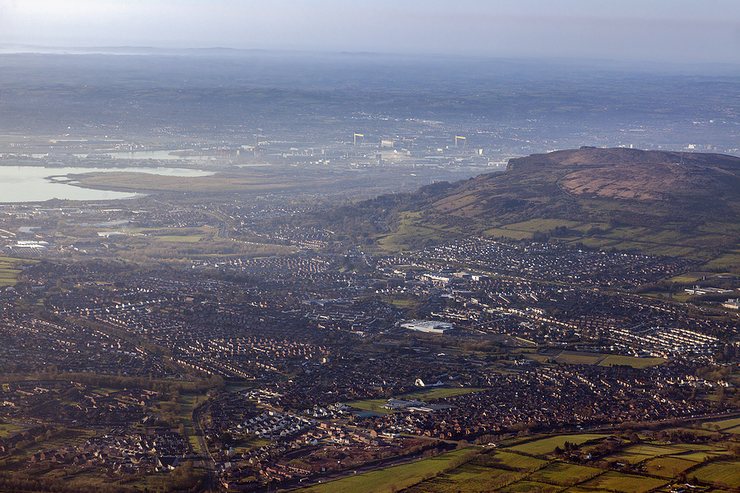
Northern Ireland may only have a population of around two million people but it does boast a very sizeable cup competition for a nation of its size. Across the border, the major cup competition in the Republic of Ireland, the FAI Cup, usually features just 40 teams yet the Irish Cup usually sees a minimum of 120 clubs involved. This is only possible due to the fact the competition includes professional, semi-professional and amateur sides.
Stretching from the first to the seventh tier of Northern Irish football, this is a very inclusive cup and easily the most prestigious knockout tournament to take place in the country. It is not the sole major domestic cup that is available though as there is also the League Cup but this is much smaller in scope, typically featuring just 35 or 36 teams.
Unlike other cup competitions that feature on the British Isles, the Irish Cup does not feature replays for tied matches, at any stage. All matches, without exception, are played over one leg with the winner determined on the day (or night). If the scoreline is level after 90 minutes then matches first head to extra time and then to penalties if required. Replays did use to take place but they were entirely abolished in 2014.
Qualifying Rounds
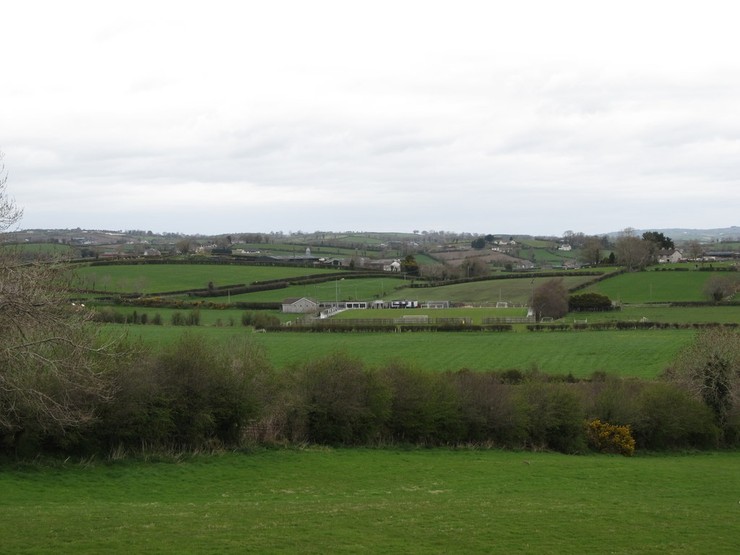
If some of the lower league clubs in Northern Ireland want a dream David versus Goliath match then they must successfully navigate their way through qualifying. Teams from across the third tier to the seventh tier start in the first qualifying round, or second round if they are lucky enough to receive a bye. The precise number of fixtures and byes fluctuates year on year but in 2021, there were 40 first-round fixtures involving 80 teams and 24 clubs that received a free pass to the second round.
There are no further byes once the second qualification round begins, with all lower league teams left standing being forced to take part. A long journey awaits some of them because before the tournament properly begins there is a second, third and fourth qualifying round. By the end of the entire qualification stage, we are left with just eight lower league teams that end up joining the top two division clubs in the main competition. Making it this far is a credible achievement especially for any non-league club (levels four to seven) and there are always some, largely because they vastly outnumber the number of 10 third-tier teams playing in the NIFL Premier Intermediate League.
Main Competition
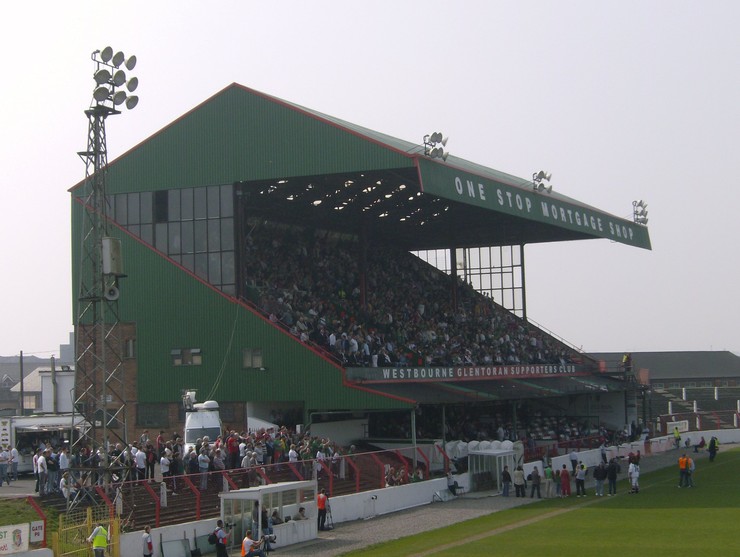
When the main competition begins the draw sees the eight surviving qualifiers meet the 24 clubs from the NIFL Premiership and NIFL Championship. Any pairing is possible at this stage so clubs can face teams from their own league or those from several tiers higher/lower. As there are 32 teams left in the competition at this point, the tournament can operate as a straightforward knockout without the need for any byes or additional teams added into the draw.
For the 16 teams able to win their first-round ties, they join the second round while the losing 16 teams face elimination from the competition until next year. Through another round of knockouts, we end up with our quarter-finalists and this round of fixtures typically played around late February or early March. The semi-finals, unlike in some other competitions, sticks with the one-legged format rather than going to a home/away split. It is simply a matter of fortune which two sides end up playing at home and which two teams face a trip to another ground.
The Final
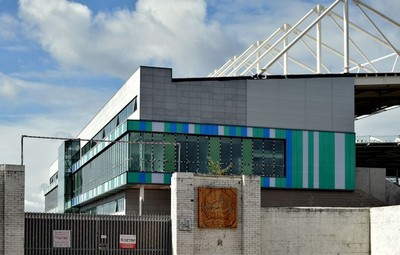
When it comes to the final though, this match takes place at a neutral venue to ensure as much fairness as possible. That is the plan anyway although it sometimes turns out not to be entirely neutral. In 2014-15 for instance, the Irish Cup finale took place at the Oval in Belfast which happened to be the home of one of the finalists, Glentoran FC. It was not quite like playing a proper home game though due to the more even split of home and away supporters. Similarly, many cup finals have taken place at Windsor Park, with it being the largest stadium in the country. This is Linfield’s ground though, a side that has won the cup a staggering number of times as you will later find out.
Although this is not a major problem, it is something the Irish FA cannot avoid as all their biggest stadiums are used by a Premiership side. This inevitably means that in some years the final will take place at the home of one of the finalists rather than being at a completely neutral venue. As with earlier rounds, in the event that the two finalists are level pegging after 90 minutes, the game will head to extra time. This does not happen all that often, mind you. Between 2002 and 2021, only three Irish Cup finals failed to find a winner within 90 minutes.
Should extra time prove insufficient in finding a decisive goal, teams will then take part in a penalty shootout to determine a winner. Having extra time followed by penalties is something of a new rule when looking at the entire history of the Irish Cup. For many decades two teams would keep replaying until one could prevail within 90 minutes. There are numerous instances of two replays being required in some finals although no final ever went as far as three.
Late in the 20th century, the Irish FA tweaked the rules, in the hope of producing fewer replays, by deciding that a drawn contest would head to a period of extra time. Only if the teams are still level after 120 minutes would a replay be called upon. In the 1993 final, the extra 30 minutes failed to help find a winner as Bangor and Aards drew 1-1 after 120 minutes twice in a row. Bangor managed to win the third encounter 1-0, though in a final that needed 330 minutes of football to crown a champion. Following this, it was fairly briefly decided there should only ever be a maximum of one replay but they were soon scrapped altogether.
Over the years the Irish Cup final has been the last domestic match of the season and one that regularly attracts a large crowd, far higher than any league fixture would. The attendance for the final does vary depending on the team involved and the hosting stadium but around the 10,000 mark is typical. It has been much higher than this in decades gone by though. The original 1933, 1947 and 1953 finals all saw over 30,000 fans spectators show up while 20,000+ was common during the interim years.
Most Successful Irish Cup Teams
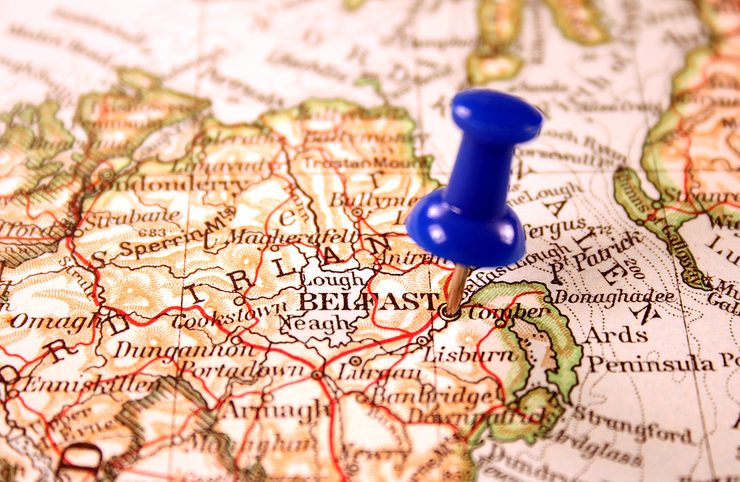
Since their creation in 1886, Linfield have featured in not far from half of all Irish Cup finals. The 139th edition of the cup, in 2021, marked their 64th appearance at the final stage in the competition. They are a side that has typically produced when it matters most with their triumph in 2021 bumping their record in the final to 43 wins and 21 losses. They do have an additional cup win on top of this, which came in 1911-12, but this did not involve them playing a final. This is because the three other semi-finalists all resigned from the IFA following a row over the referees’ wages.
So, with over 40 Irish Cup wins to their name, Linfield are far and away the most dominant cup side in Northern Ireland. Only two other teams have managed double figures, Glentoran who sit on 23 wins at the time of writing and Lisburn Distillery who won 12 of their 19 finals appearances. Success has come the way of Glentoran in recent years but for Distillery, they have not reached the final, let alone won the competition since 1970-71. Now playing in the third-tier of Irish football, there could be an extremely long wait for cup win number 13.
The below table includes all teams with at least five Irish Cup wins as of 2021. In the case of Ballymena United, some will argue they have six wins as Ballymena FC, whose collapse sparked the immediate foundation of Ballymena United, claimed one win in 1929. They are technically two different teams though even if United tend to assume the history of the long-dissolved club. All teams in the list are currently active except Belfast Celtic who folded back in 1949.
Most Successful Irish Cup Teams: 1881 – 2021
| Team | Cup Wins | Runners-Up |
|---|---|---|
| Linfield | 44 | 21 |
| Glentoran | 23 | 19 |
| Distillery | 12 | 7 |
| Cliftonville | 8 | 12 |
| Belfast Celtic | 8 | 4 |
| Glenavon | 7 | 10 |
| Coleraine | 6 | 7 |
| Ballymena United | 5 | 8 |
As you can see, there are a few examples of teams losing the cup final more often than they have won it. In terms of the absolute worst records though, there are a few contenders. In one corner you have Portadown who have been beaten in eight of their 11 finals, giving them a failure rate of 73%. Republic of Ireland side, Bohemians, fared even worse before switching leagues, losing five of six final appearances. In one of these, they were utterly thrashed by Linfield too, losing the 1984-85 final by a 10-1 margin, unsurprisingly the biggest final loss in the history of the tournament.
The crown for the ‘unluckiest’ side has to go to Larne though who are yet to win the cup despite reaching the last stage on six occasions, most recently in 2021. Not only this but the County Antrim side’s appearance in 1935 has a compelling claim to go down as the most boring Irish Cup final of all time. Their first clash against Glentoran finished goalless, so a replay was arranged four days later. As the follow-up match also finished as a 0-0 stalemate, the two teams met again later in the month. Only in this third meeting did we finally see a solitary goal meaning some fans had seen 270 minutes of football and just one goal to show for it.
Irish Cup History & Records
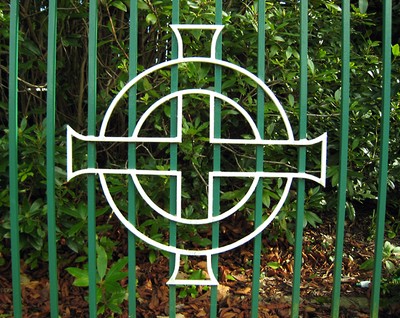
The Irish Cup dates all the way back to the 1880-81 season although in its inaugural year only seven teams took part, so it was a tiny fraction of the size it is today. Moyola Park, who are now an intermediate club, were the first team to lift the trophy, beating Cliftonville 1-0 in the final. It has run continually since although on three occasions the tournament has concluded before the final. In addition to the 1911-12 missed final mentioned earlier, there was no final for 1919-20 or 1998-99. The former cancellation was because one of the semi-final matches saw both teams ejected from the competition, one due to fan violence and the other for fielding an unlisted player. In the case of the latter, it turned out one of the would-be finalists, Cliftonville had fielded an ineligible player earlier in the competition.
The Irish Football League was created not long after the cup, making its debut for the 1890-91 season. Since then Irish League Clubs have dominated the competition, winning every single edition of it bar three. These extremely rare exceptions came when Willowfield beat Larne in 1928, Dundela beat Glenavon in 1955 and Carrick Rangers beat Linfield in 1976.
For the first four decades of its existence, the Irish Cup, as the name suggests was an all-Ireland competition. Clubs now based in the Republic of Ireland did not fare well in this time though, winning just four of a possible 41 titles (Shelbourne x 3, Bohemians x 1). Instead, it was teams that Belfast that started strongest and they have continued to dominate the competition.
Clubs from the Northern Irish capital have over 100 Irish Cup titles, a win rate exceeding 70%. This Belfast dominance means that not all six counties in Northern Ireland have produced a cup winner. There has been at least one finalist from each though with Ballinmallard United completing the full set in 2019 as they were the first representatives from County Fermanagh.
Should you ever want to catch a glimpse of Irish Cup action, BBC Northern Ireland broadcasts the final match live. They did this for the first time in 2001 and they have stuck with it ever since, further increasing the prestige of the contest. This does mean that the first (and as of 2021, only) Irish Cup final to be won on penalties, in 2007, was broadcast live to the nation. During this historic occasion, Linfield held their nerve to beat first-time finalists Dungannon Swifts.